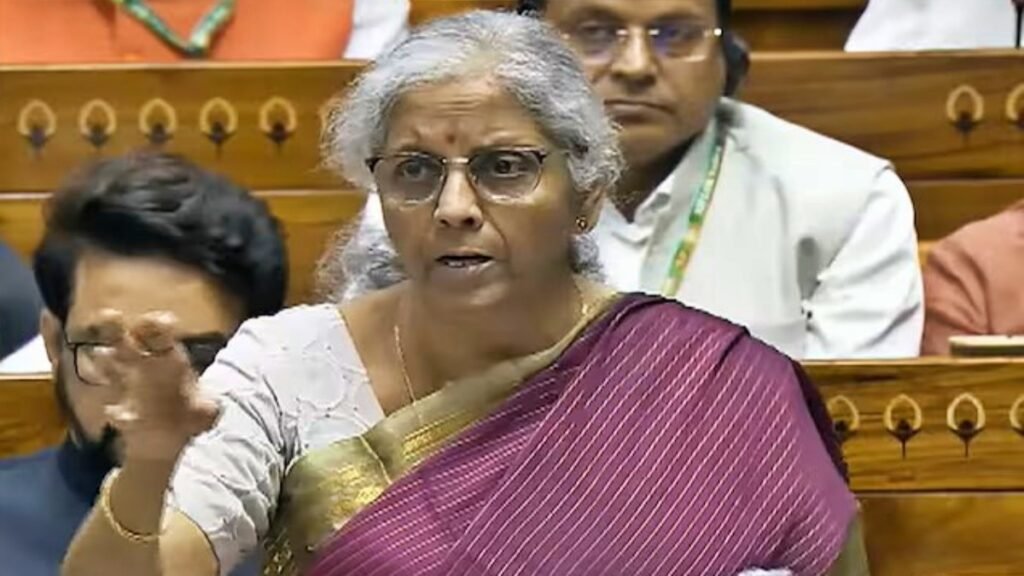
New Delhi: The Indian government took a significant step towards reforming the banking sector by introducing the Banking Laws (Amendment) Bill, 2024, in the Lok Sabha on Friday. The proposed legislation includes several crucial amendments aimed at enhancing bank governance, investor protection, and regulatory compliance. Among the key provisions, the Bill seeks to increase the number of nominees per bank account, redefine what constitutes ‘substantial interest’ in directorships, and grant banks more autonomy in determining statutory auditors’ remuneration.
Expanded Nominee Options:
One of the most noteworthy changes proposed in the Bill is the expansion of nominee options for bank accounts. Currently, account holders can designate only one nominee. However, the new Bill seeks to increase this limit to four, offering customers greater flexibility in managing their financial affairs.
No Proposal to Reduce Government Stake in PSU Banks:
Despite earlier announcements in the 2021 Budget regarding the privatization of two Public Sector Undertaking (PSU) banks, the new Bill does not include any provisions for reducing the government’s stake in these banks. Reports suggest that the privatization plan has been postponed, with no timeline provided for its potential future implementation.
Redefinition of ‘Substantial Interest’ for Directorships:
Another significant amendment in the Bill is the redefinition of ‘substantial interest’ for individuals holding directorships in banks. The current threshold of ₹5 lakh, which was set nearly 60 years ago, is proposed to be raised to ₹2 crore. This adjustment reflects the need to align banking regulations with contemporary financial realities.
Introduction and Legislative Process:
Finance Minister Nirmala Sitharaman introduced the Banking Laws (Amendment) Bill, 2024, in the Lok Sabha. The Bill had already received approval from the Union Cabinet the previous Friday. As part of the legislative process, the Bill is expected to undergo scrutiny and debate before it can be passed into law.
Changes to Cooperative Banks and Regulatory Compliance:
The Bill also includes provisions that impact cooperative banks, although specific details have yet to be disclosed. Additionally, the Bill seeks to redefine the reporting dates for banks’ regulatory compliance. Instead of the current practice of reporting on the second and fourth Fridays of each month, banks will now be required to submit reports on the 15th and last day of every month, ensuring more streamlined and predictable compliance schedules.
Autonomy in Remuneration for Statutory Auditors:
A further amendment in the Bill gives banks greater freedom in deciding the remuneration of statutory auditors. This change is expected to provide banks with more flexibility in their financial management and auditing practices, potentially improving the overall efficiency of banking operations.
Amendments to Key Banking Legislation:
The Banking Laws (Amendment) Bill, 2024, proposes amendments to several foundational banking laws, including the Reserve Bank of India Act, of 1934, the Banking Regulation Act, of 1949, the State Bank of India Act, of 1955, and the Banking Companies (Acquisition and Transfer of Undertakings) Acts of 1970 and 1980. These changes aim to modernize and strengthen the legal framework governing India’s banking sector.
Budget 2023-24 Announcement:
The introduction of this Bill follows the Finance Minister’s announcement during her 2023-24 Budget speech, where she outlined the government’s intention to improve bank governance and enhance investor protection. “To improve bank governance and enhance investors’ protection, certain amendments to the Banking Regulation Act, the Banking Companies Act, and the Reserve Bank of India Act are proposed,” Sitharaman stated.

The Banking Laws (Amendment) Bill, 2024, represents a comprehensive effort by the Indian government to update and refine the regulatory landscape of the banking sector. By introducing these amendments, the government aims to ensure that the sector remains robust, transparent, and capable of meeting the challenges of the modern financial environment. As the Bill moves through the legislative process, it will be closely watched by industry stakeholders, investors, and policymakers alike.








































